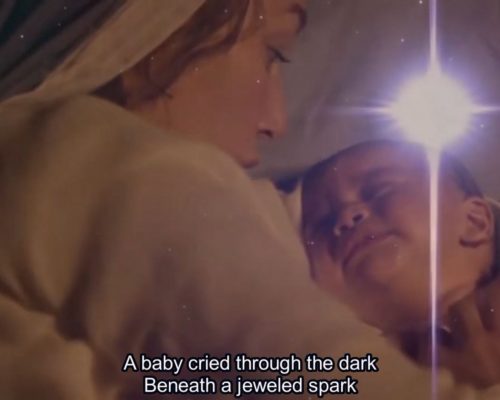What Does God Think about Santa?
Christmas 2009 has come and gone.
I thought I would share a few of Vickie’s and my convictions about Christmas. They don’t have to be your convictions. But sharing them now gives you a year to think about them!
Vickie and I are sort of non-conformists when it comes to Christmas.
We don’t go as far as the Puritans (and others), but we try to do our little part to minimize the commercial aspects of Christmas and to maximize the emphasis on the birth of Jesus.
The Puritans refused to celebrate Christmas at all. They were troubled by its pagan origins. The Roman Catholic Church had co-opted the winter solstice holidays of paganism and made them into a celebration of the birth of Christ. There is no Biblical encouragement to celebrate the birth of Christ at all, and certainly no hint that December 25 is a special day. Christmas tended to be associated with drunkenness and godless partying. So the Puritans disdained the whole thing.
In our own culture, those who make their living by selling stuff have learned to manipulate our sentimentalism and our desire to give and receive gifts by milking the Christmas holiday and transforming it into a vast sales strategy.
Our culture seems to be in a kind of tug-of-war over Christmas. On the one hand, Christians try to pull it back toward the Biblical story of the nativity, the Incarnation, God with us. On the other hand, secularists strive to pull it toward a generic happy holiday, without Christian content, a time of fun, giving and receiving gifts, parties, and football.
When Vickie and I were first married, we decided to establish a Christmas tradition that focused less on kids longing for gifts and more on Christ. Yes, when our boys were young, we did give them some gifts–never very extravagant (out of necessity as well as conviction!)
But, if you ask our boys what our Christmases were like when they were growing up, I think they would first think of the tradition we began then and have continued until this present time.
We have a time every year around Christmas (it doesn’t have to be exactly on Christmas Day or Christmas Eve), when we meet with all the members of the family who are able to be in our neck of the woods. ( Currently, we have kids and grandkids in Tennessee, South Carolina, Texas, and California. So we are rarely able to get many of them together at once.)
First we set up the keyboard and sing a few Christmas Carols. Then, while “Silent Night” plays quietly in the background, we discuss the events of the preceding year. This is usually a time of laughing and crying as we remember highs and lows, and thank God for His blessings and provision and guidance.
After that we have a prayer time, inviting any one who wishes to pray aloud to give thanks and/or offer petitions and intercessions.
Then we read the story of the birth of Christ from Matthew and Luke. About 21 years ago we divided it up into nine parts (one for Vickie and me and each of our seven sons). When any of our sons aren’t present, we assign their parts for others to read. Since our sons have become adults, there have been a few times when none of them could be with us for Christmas. On those occasions, Vickie and I read all the parts in turns.
Finally we spend time remembering why Jesus came as a baby to Bethlehem. We do that by commemorating His death by taking the unleavened bread, to remember His body, and the fruit of the vine to remember His blood.
In recent years, we have chosen not to have a Christmas tree. No, we are not opposed to Christmas trees. But we have decided that a better way for us to express our focus at Christmas time is through nativity sets. We have several of these placed throughout the house.
What about Santa?
When our boys were young, we decided it was very important for us to do the best we could to always tell them the truth. This extended to Santa.
Is it true that there is a jolly little fat man in a red suit who magically travels around the world giving toys to good little boys and girls? No.
So while we did tell them the story of Santa, we made it very clear Santa was just a fun make-believe story, like other wonderful fairy tales and stories. Of course, many of those stories teach good lessons that can reinforce Biblical principles. The Santa story can be used to encourage generosity, for example.
Unfortunately, the way most people teach their kids about Santa does not encourage generosity, but greed! Kids are not focusing on what they could give others, they are encouraged to focus on what they are going to get! This can be very exciting for parents and kids alike, but may teach a very unchristian attitude!
When I was a kid, my parents taught me that the Santa story was true. They and I got a lot of excitement out of it. Later, when I got old enough to begin to realize the story could not possibly be true, I went through a period of time wondering if it was only a matter of time until I learned that the whole story about Jesus fit into the same category. Could it be that all the stuff they had told me about Jesus was a fairy tale too? That nagging doubt about Jesus bothered me from time to time until I got old enough to study the whole subject of apologetics for myself.
So we decided that the truth matters. And we we decided that even with young children, it’s better to tell the truth. And we decided that if children learn that their parents haven’t told them the truth about some things, that they may not be able to trust their parents about other things.
It also seems clear that God is not pleased when we turn Christmas into an opportunity to incite greed and selfishness! For many (not all) kids, the Santa story does exactly that. Parents must guard against fostering greed in their kids. There is already enough of it in us as a result of what we inherited from our father Adam!
Finally, we can unwittingly communicate some really bad theology to our kids when we allow Santa to be a sort of God-substitute. (Think about it. He can be everywhere all over the world in the same night. He knows what you are thinking. He knows whether you have been good or bad!) Some parents communicate, “You better be good! Remember, Santa is watching! And if you’re not good, you may not get the presents you really want!”
It’s easy to see how that kind of thinking might transfer from Santa over to God. And we end up with a form of the prosperity gospel. God, for many, has become a kind of cosmic Santa. If we try to be really good for Him, maybe He will give us the things we really want (health, money, good jobs, nice homes, nice cars, etc.). That really bad theology!
So, what does God think of Santa? If we use the story of Santa to teach our kids the importance of giving to those who are less fortunate (as the real St. Nick did!), the story can be used to communicate an important Biblical principle.
But if we use the story to be untruthful to our kids, or to instill within them a kind of incipient greed, or to give them a false impression of what He is really like, then I think that Santa cannot be very pleasing to God!
We have a higher responsibility to our kids than to simply pass on traditions… especially if those traditions have the potential to do spiritual damage to them!
Stay in the battle!
Steve Hall



-
Tagged Christmas, Cross Creek Christian School